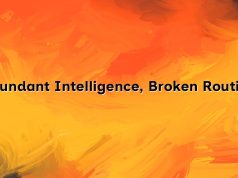In the fast-paced world of corporate recruitment, the constant chase for top talent under tight deadlines and performance metrics can be both exhilarating and exhausting. As recruiters navigate this high-pressure environment, the conversation around well-being has gained significant traction, with mindfulness emerging as a buzzword for managing stress and fostering a more balanced life. However, mindfulness in the recruitment sector presents a paradox that calls for a nuanced discussion.
Mindfulness, the practice of being fully present and engaged in the moment, offers a respite from the relentless pace of the corporate world. It encourages individuals to slow down, breathe, and find a sense of equilibrium amidst the chaos. For recruiters, whose days are filled with candidate searches, interviews, and strategic planning, mindfulness can be a haven, offering clarity and a heightened sense of focus that ostensibly leads to better decision-making and a more humane approach to talent acquisition.
Yet, the very nature of the recruitment industry, with its emphasis on quantifiable achievements, often stands at odds with the intrinsic values of mindfulness. The pressure to meet quotas and outperform competitors can potentially challenge the authenticity of integrating mindfulness into the corporate culture. In an industry that prizes results, can mindfulness be anything more than just another tool to enhance productivity?
Reports of burnout and high turnover among recruiters underscore the need for a more holistic approach to well-being in the workplace. Companies are starting to realize that the health of their employees cannot be an afterthought, given its direct impact on performance and engagement. However, genuine integration of mindfulness requires a commitment to values that transcend bottom-line results. It should not be merely a performance booster, but a foundational element of a company’s culture.
There are real-world implications for recruiters’ mental health when mindfulness becomes a forced practice aimed solely at increasing output. It can lead to cognitive dissonance, where the push for mindfulness is at odds with the relentless pursuit of targets, potentially causing more stress and undermining the very objectives it seeks to achieve.
Ethical considerations also come into play when promoting mindfulness in a competitive workplace. The danger lies in packaging mindfulness as a band-aid solution for systemic issues such as excessive workload and unrealistic expectations. To avoid this pitfall, companies must align their business models with mindful practices, ensuring that metrics and well-being are not mutually exclusive.
Some organizations have taken bold steps to genuinely embed mindfulness in their operations. They’ve managed to strike a balance by incorporating mindfulness training, creating spaces for reflection, and establishing practices that discourage an always-on mentality. These organizations demonstrate that when done right, mindfulness and performance targets do not have to be mutually exclusive.
In closing, the challenge for corporate recruitment lies in maintaining the authenticity of mindfulness in practice. It is about creating a culture that values the well-being of recruiters as much as their achievements. As mindfulness continues to gain popularity, recruiters and their organizations must navigate this paradox with care, ensuring that the practice remains a true source of support, rather than just another metric to be exploited.
Companies looking to walk this fine line can start by offering mindfulness as a choice rather than a mandate, providing resources and support for those interested. They can structure performance metrics to include indicators of well-being and ensure that leadership embodies the principles of mindful conduct. Ultimately, for mindfulness to hold true value in the corporate recruitment world, it must be woven into the very fabric of the organizational ethos, celebrated for its contribution to the human side of recruitment, and recognized for its ability to enrich both the workplace and the work itself.

























